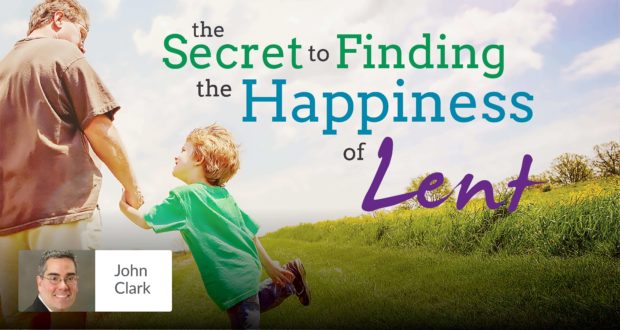Summary
John Clark says Lent is a reminder of the end for which God made us, which is to see Him face to face and share in His happiness. Everything else is dust.If you’re happy during Lent, you’re doing it wrong.
Such is the attitude of many people during these forty days of penance and purgation. Let’s be honest: making sacrifices is not normally associated with happiness; “doing without” is not synonymous with fulfillment. Yet, perhaps in our inability to make these connections, we are doing it wrong.
Time of Penance / Time of Partridge
One of my favorite stories in Catholic history is the account of Saint Teresa of Avila eating the delicacy of a partridge (the filet mignon of its day). As she was enjoying this dinner that a benefactor had graciously given her, a fellow sister asked Teresa whether it was appropriate that she dare feast upon such a treat.
After all, the logic went, Teresa had taken the vow of poverty. But Teresa responded: “Sister, there is a time for penance, and a time for partridge.”
And Lent is a time of penance.
When we hear this account, we can be tempted to focus on what is different between the time of penance and the time of partridge. But perhaps we should focus instead on what is the same. The time of partridge is about enjoying the things that God gave us, and offering thanks to God for loving us so much that He gave us this beautiful and superabundant world.
Material things are good. The trouble, of course, is that we can like material things so much that we forget about God. In fairness, “forget” might be a strong term. We know He is there. It would be more accurate to say that we “wander.”
There is a popular bumper sticker going around today that reads, “Not all who wander are lost.” While there may be some roundabout truth to that, we might also observe that wandering is the absence of being found.
Holding Hands with God
In our consumerist society, it’s becoming clearer that much of man’s wandering is an aimless trek in search of material things that will not fulfill him. Yet, we wander off like children.
When some of my children were little and we used to go through the mall around Christmastime, they would often try to break free of my hand and wander off to look at something: a colorful show of lights, a bright red train, a reindeer display.
They loved their father, but at those particular moments, there was something they were more interested in. The irony is that I was on the way to show them those wonderful things anyway, but they grew impatient waiting. Thus, they lost their grip.
God desires that His children hold hands with Him and go for a walk with Him around the world to see all the things that God has made for man’s enjoyment. Jesus extends His sacred hand to us to lead the way, but we are tempted to tug free of His precious hand and go our own way. We might be a little selfish and we might be a little impatient.
To be honest, we might be a little scared. After all, that precious hand of Jesus still has a hole in it—a wound that tore open as He hung from a nail on a wooden cross. And when He extends that hand to us, we know that eventually, it will lead to a cross.
His precious hand is a reminder of sacrifice, and very often we don’t want a reminder. Instead of holding hands with God, which will eventually lead to eternal fulfillment, we grab hold of material things that will—if all else goes well—grant us only momentary happiness.
To Share in God’s Happiness
God still looks at the world and sees that it is good. All the things of the material world can bring us closer to God, and all of the things of the material world can separate us from Him. The problem’s not the material things; the problem is us. Problems arise when we subordinate the Creator to His Creation—when we grip material things tighter than we grip the hand of God.
Both a time of penance and a time of partridge remind us that the goods of this world are meant to be enjoyed, but enjoyed subordinately to the goodness of God. It is only then that we can truly enjoy them. As Saint Teresa of Avila writes in The Way of Perfection, “He who cares nothing for the good things of the world has dominion over them all.”
Much as we enjoy the material things of this world, we know another reality: we ain’t seen nothin’ yet. The goods of Heaven await. Lent is a reminder of the end for which God made us, which is to share in His happiness. To see Him face to face. In relation to that, everything else is dust.
If you’re happy during Lent, you’re doing it right.

 Seton Magazine Catholic Homeschool Articles, Advice & Resources
Seton Magazine Catholic Homeschool Articles, Advice & Resources
